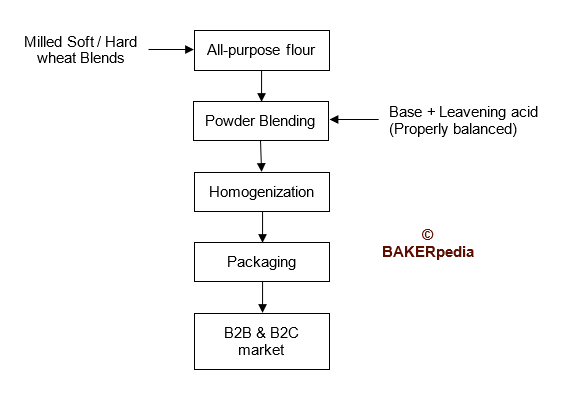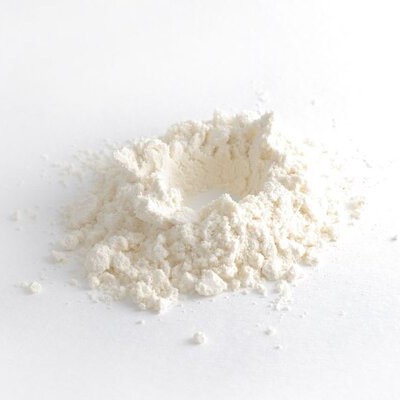Origin
Self-rising flour became popular as waffles, muffins, and pancake dry mixes were launched in the US market. Customers soon started to use such dry preparations to quickly have something to eat for breakfast.
Self-rising bread flour followed the same line and was intended for bakers who had an idea of additional ingredients that should be added on top of formulation to create the perfect product.
Commercial production

Nutrition
Depending on its product application and composition, self-rising flour may be high in sodium given the presence of sodium bicarbonate, sodium aluminum phosphate (SALP), sodium acid pyrophosphates (SAPP) and salt added on top for flavor.
Newer versions of this flour may contain sodium-reduced or sodium-free baking powders which use encapsulated organic acids, monocalcium phosphate, potassium bicarbonate, and some others.
Application
A distinction should be made for US and non-US self-rising flours. In the US it contains baking powder and salt and is mostly intended for Southern-style biscuits. However, in the UK, this flour contains only baking powder and has a lower protein content.
The use is limited by two factors:
- Different formulas call for different proportions of baking powder and, in many cases, extra baking soda. In such situations no single blend is right for all purposes. The same goes for all-purpose flour that would not be adequate for both high-quality bread and cakes.
- Baking powder loses its initial leavening power as time passes, so the volume of baked goods made from this flour may fluctuate considerably. For this reason, this kind of flour would not be a safe choice for high-speed baking given that too much product variation would be created.
FDA regulation
Self-rising flour is a regulated cereal flour ingredient in the US. The FDA approves its use in any food product without any limitations given it is not considered an additive nor a process aid.
References
- U.S. Food and Drug Administration. “CFR – Code of Federal Regulations Title 21.” Accessdata.fda.gov, PART 137 — CEREAL FLOURS AND RELATED PRODUCTS, https://www.accessdata.fda.gov/scripts/cdrh/cfdocs/cfcfr/CFRSearch.cfm?fr=137.180, Accessed 24 April 2021.

